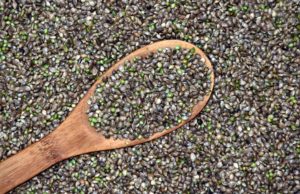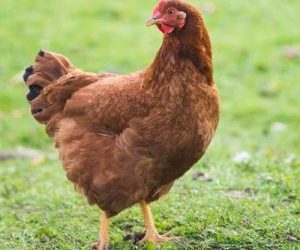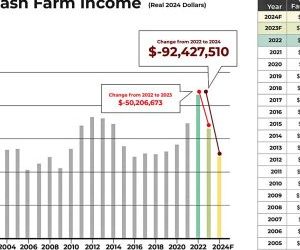U.S. hemp interests are urging regulators to follow a strictly American path as they consider the advisability of hemp waste as feed for laying hens.
In recent letters, the Hemp Feed Coalition (HFC) and the National Hemp Association (NHA) both referenced unspecified claims by leading international groups and one rival American organization that apparently have weighed in on the matter, suggesting regulators ignore their input.
A vote by the Association of American Feed Control Officials (AAFCO) that would pave the way for hempseed meal as feed for laying hens in the U.S. could come this week. AAFCO is expected to consider a final definition for the feedstock during the organization’s annual meeting in San Antonio, Texas, which runs Wednesday to Friday. The regulator’s approval is a key step for a feedstock’s commercial adoption and distribution.
NHA name-calling
In a letter sent by the NHA to AAFCO July 13, Chairman Geoff Whaling urged the feed standards agency to “dismiss the assertions made by EIHA (European Industrial Hemp Association), and CHTA (Canadian Hemp Trade Alliance), . . . because these groups do not represent the interests of U.S. operators and seem to be driven by market protectionism rather than genuine concern for the industry’s progress.”
Whaling also pushed back against the U.S.-based National Hemp Growers Association (NHGA), suggesting that organization “lacks credibility, with no substantial presence or initiatives reflecting their claims.”
“The personalities associated with some of these organizations are self-serving and pride themselves in attempting to derail efforts that are not of their own making,” Whaling also wrote.
‘Unreasonable ask’
A separate letter sent by HFC President Andrew Bish to supporters July 11 also referred to “opposition from certain groups (that) threatens the progress we have made and poses a direct threat to U.S.-based hemp grain processors, genetic companies, farmers, and producers.
“Other countries have their own regulatory systems for feed,” Bish wrote. “Considering other countries’ regulations is an unreasonable ask and potentially a market-protective move by outside advocates. Whether a country follows another country’s regulations should not concern operators of nascent industries,” Bish observed
It is unclear precisely what positions EIHA, CHTA and the NHGA have taken that collide with HFC’s efforts, as the views of those organizations do not appear to be publicly available and neither NHA nor HFC explained them.
‘Nutrient-rich’ waste
Hempseed meal, also referred to as hempseed “cake,” is the leftover material from cold pressing hemp seeds to squeeze out oil intended for human consumption. Advocates have argued that while the meal is considered a waste product, it is a high-protein, high-fiber, and nutrient-rich feed that can be valuable in animal diets.
If approved, hempseed meal would move farther away from a historic ban attributable to hemp’s misguided association with the psychoactive compound THC. Approval would also counter pushback by farming and food safety agencies. Animal feed, nutrition and veterinarian groups have all warned agricultural leaders and policymakers about potential health risks of the hemp residue.
Concerns have centered around trace amounts of THC which may be present in the meal that could be passed down to humans through eggs. Critics have also argued that more long-term data is needed to determine the effects of hempseed meal on poultry health and productivity.
Progress since 2022
Those concerns were most strikingly addressed in a 2022 warning letter issued by AAFCO and undersigned by more than 15 organizations including livestock and dairy associations, and consumer advocacy groups. The letter urged agricultural leaders and state policymakers to work with federal and state agencies and to follow formal food safety approval processes for hemp in animal feed products.
Since that time, progress has been made, led by the Hemp Feed Coalition, which represents nearly 90 hemp companies and organizations. The U.S. Food & Drug Administration’s (FDA’s) Center for Veterinary Medicine (CVM) tentatively approved wording put forth by the Ingredient Definition Committee of AAFCO in January. Validation by the CVM theoretically assures formulators and feed mills that hempseed meal is safe, and that any potential cannabinoid contaminants do not transfer to human food products.
THC, CBD limits
Limits on both THC and CBD are critical considerations in the advancement of hempseed meal as animal feed.
“The FDA has, for this application, set limits of 2 ppm (parts-per-million) total THC and 20 ppm total CBD,” according to the Bish letter. “These limits are based on the samples used in our submitted studies.
“The FDA has not, for this application, been willing to accept other available ‘industry data’ outside of (the) U.S. at face value and continues to maintain the need for (hempseed meal) samples that are used in an FDA-approved feed study,” he wrote.
“The FDA requires that food products, including chicken eggs, achieve a ‘non-detectable’ THC and CBD, defined as less than 1 ppm. We believe this is due to the lack of established safety levels for THC and CBD in humans. Although higher limits would be preferable and potentially more practical, the current data does not support this.”
Step-by-step
Approval of the current hempseed meal application can facilitate future adjustments in THC and CBD levels, Bish suggested. “Once we’ve achieved AAFCO member approval, the likelihood of funding a study specifically targeted at increasing the THC and CBD thresholds is more likely.”
If approved this week, the definition of hempseed meal will be tentatively listed later this year in AAFCO’s official publication, the foundational document for the feed industry that provides definitions, regulations, and procedures related to ingredients, labeling, and manufacturing. Definitions are reviewed annually for final approval, but a tentative listing lets states move forward with commercial adoption in the meantime.
While the current application is specifically for hempseed meal that could be fed to laying hens, HFC said it is continuing to collect data that may eventually extend the feedstock to other farm animals, including beef cattle and dairy cows.


